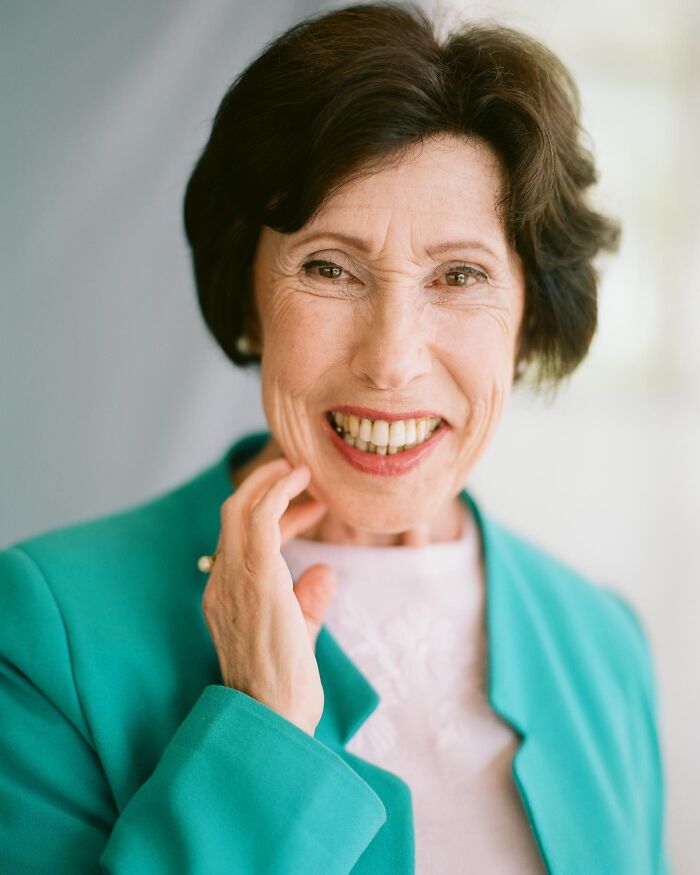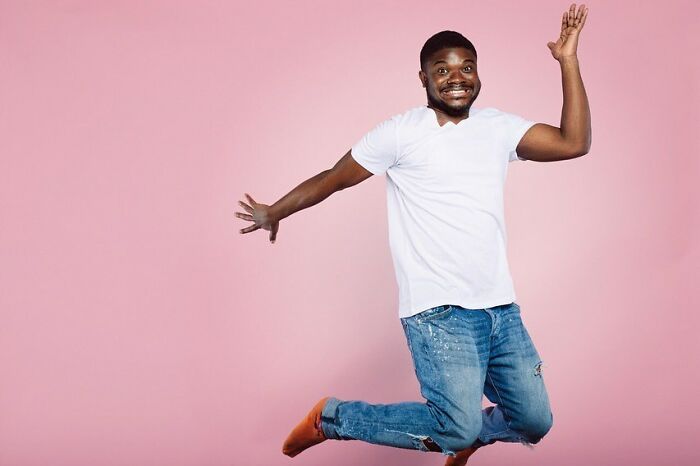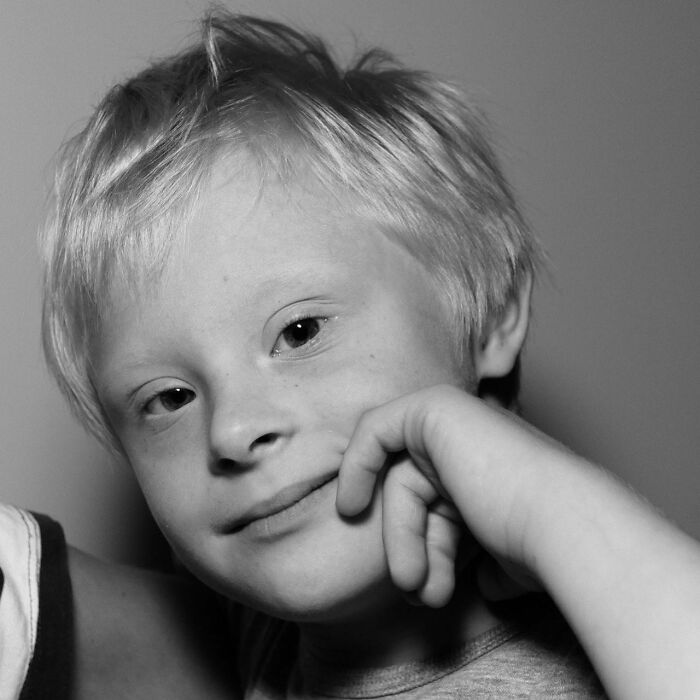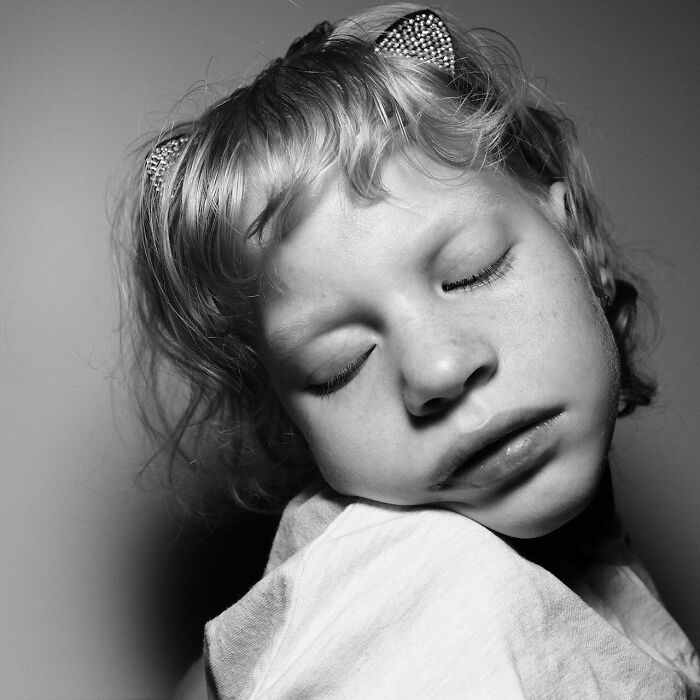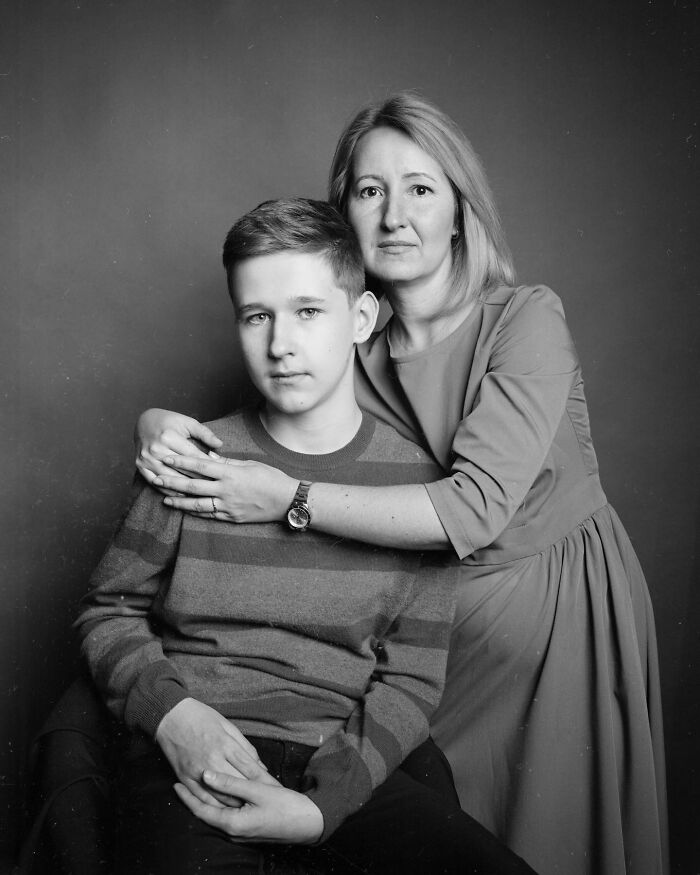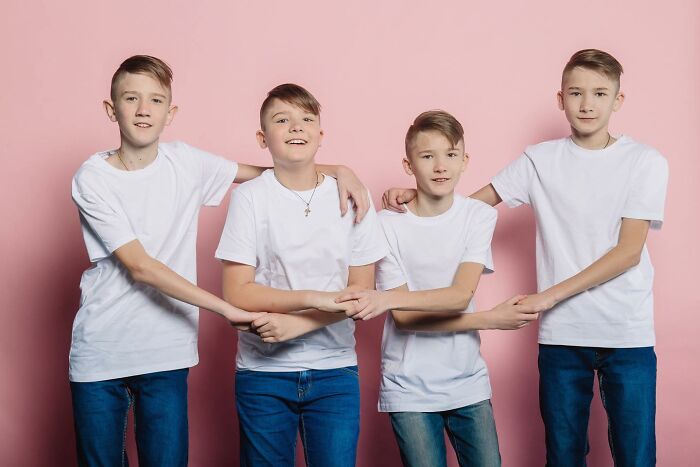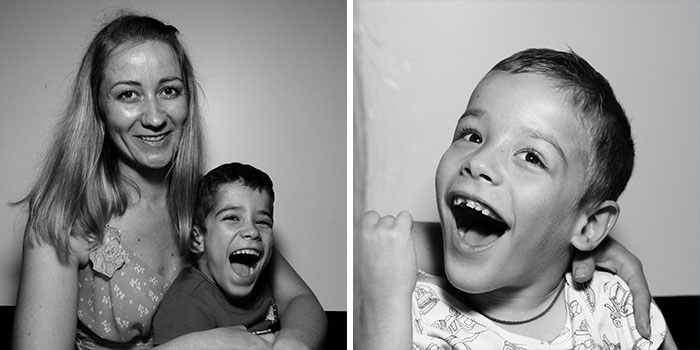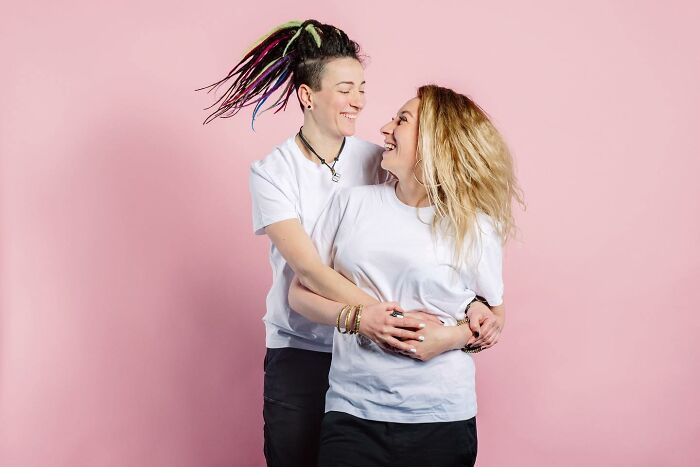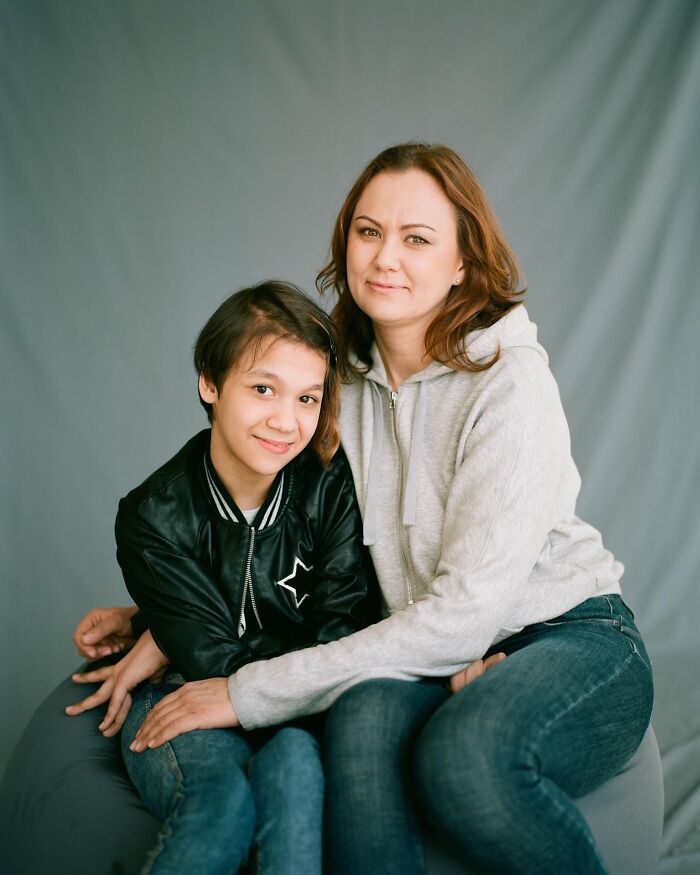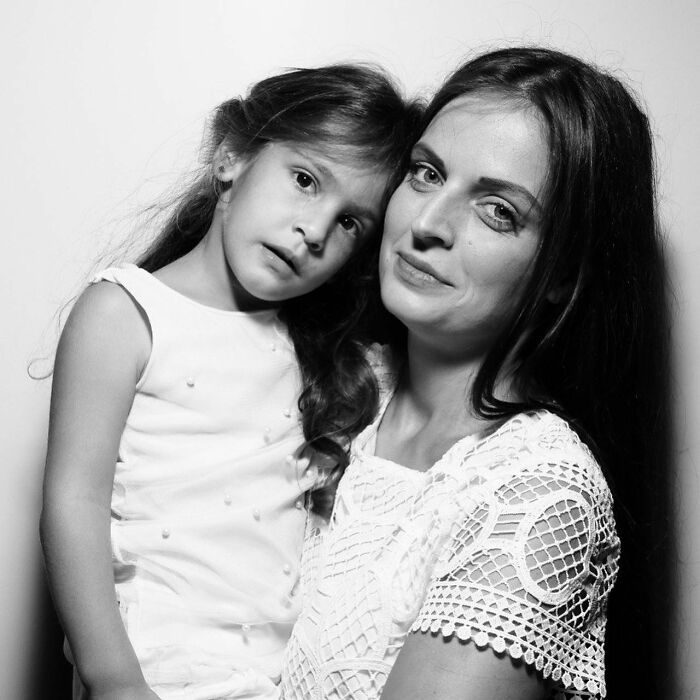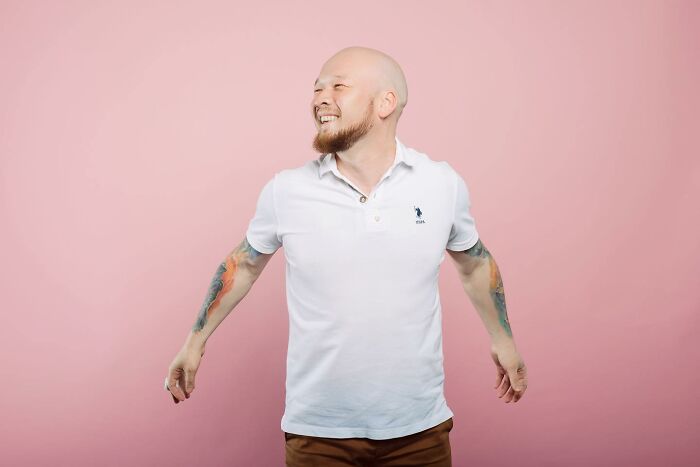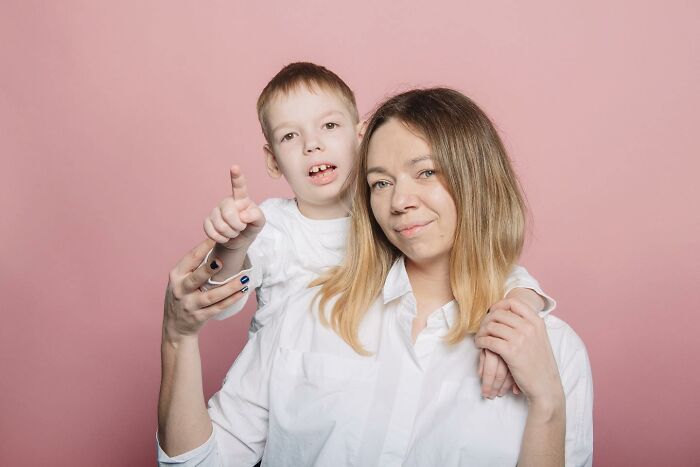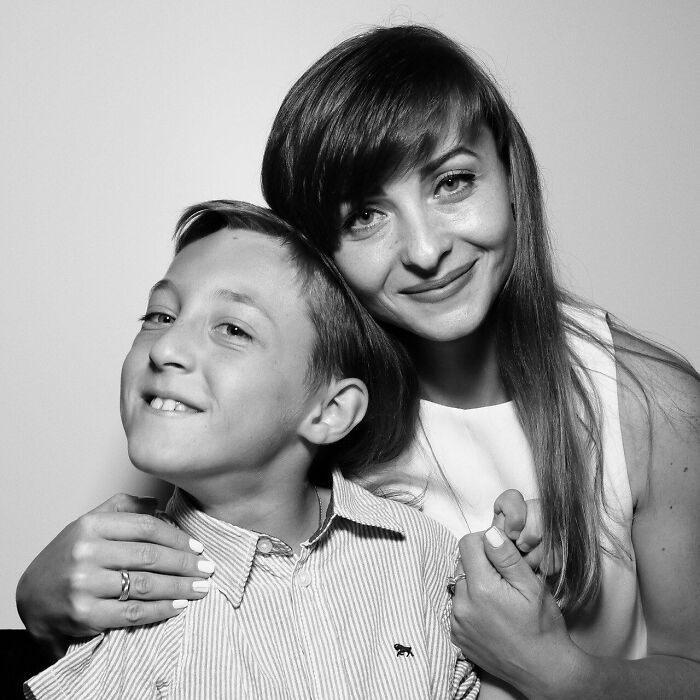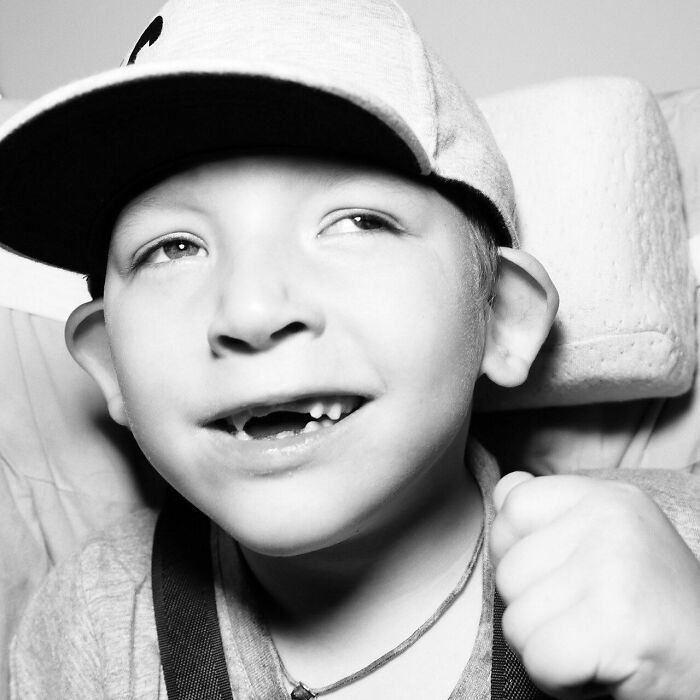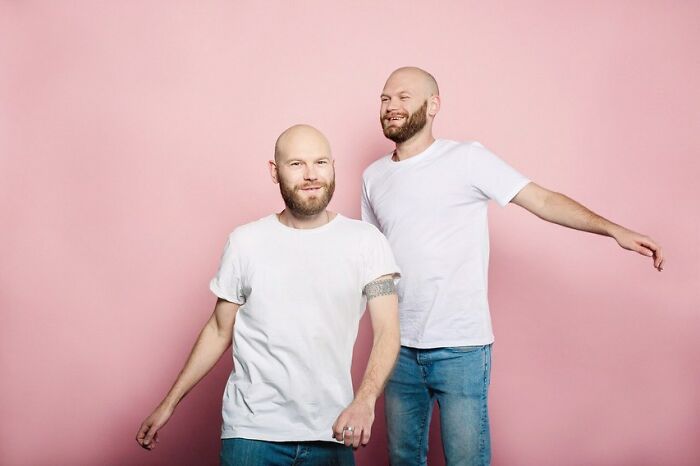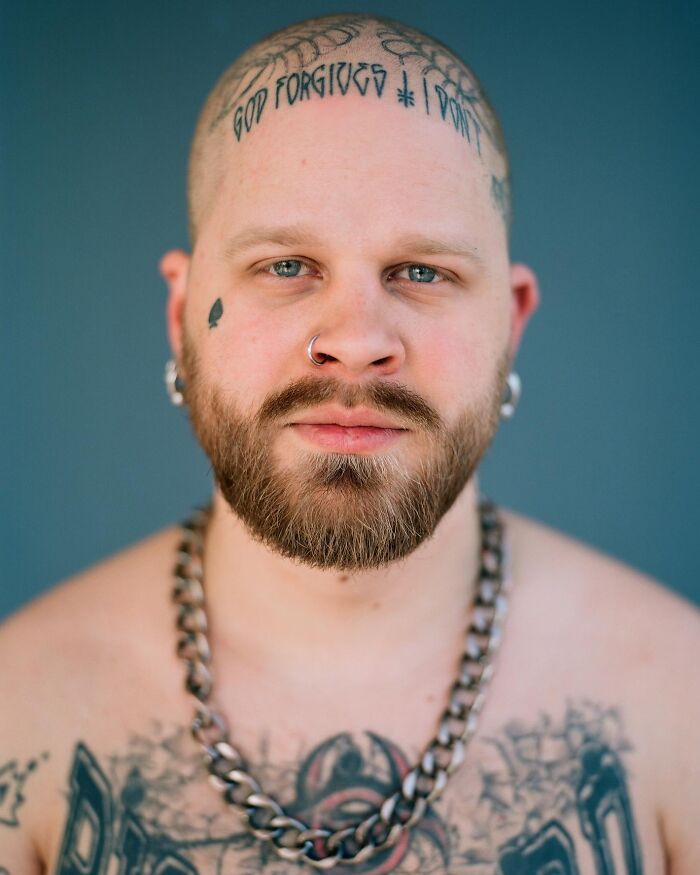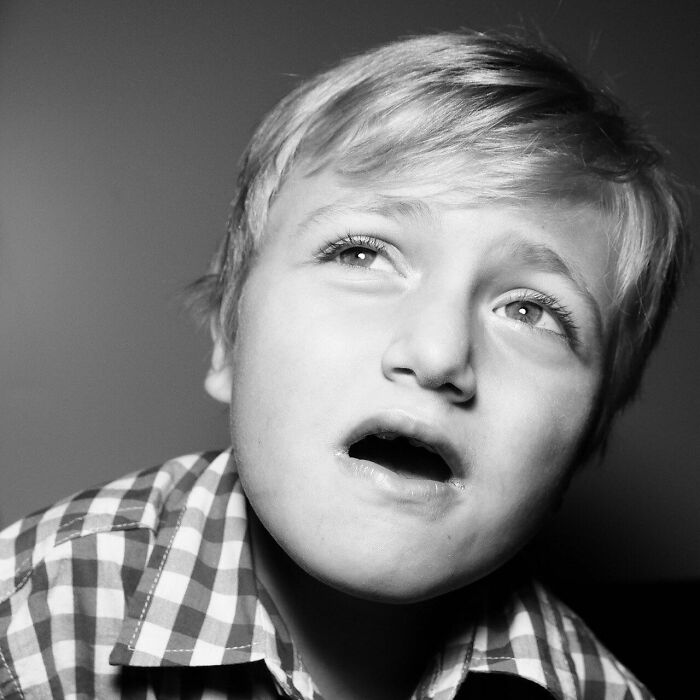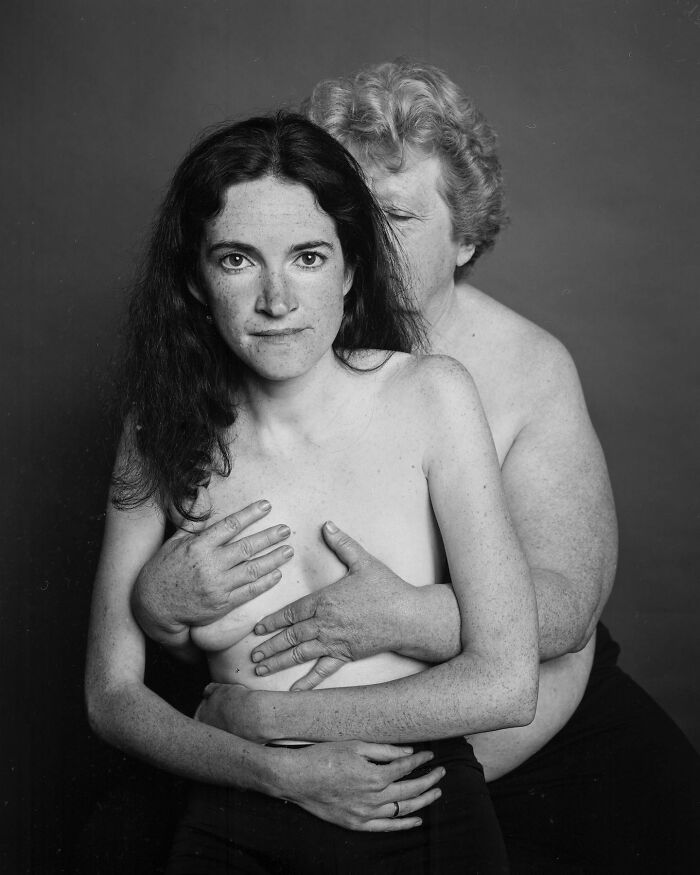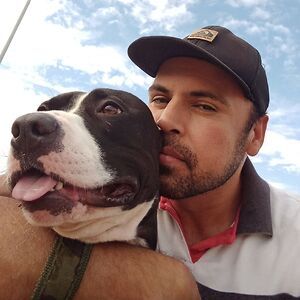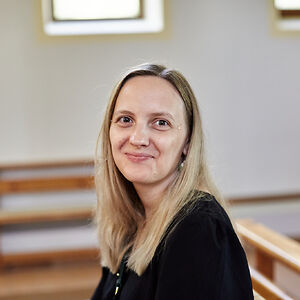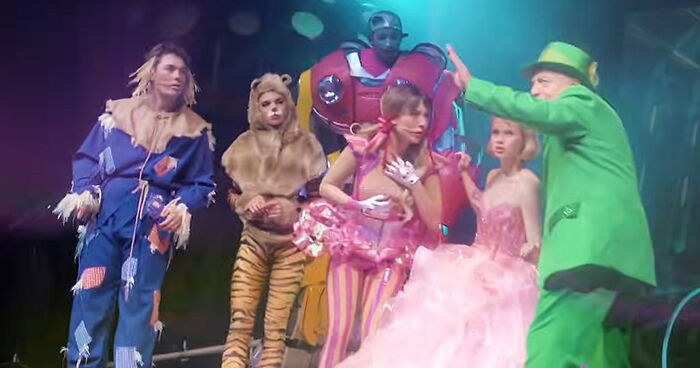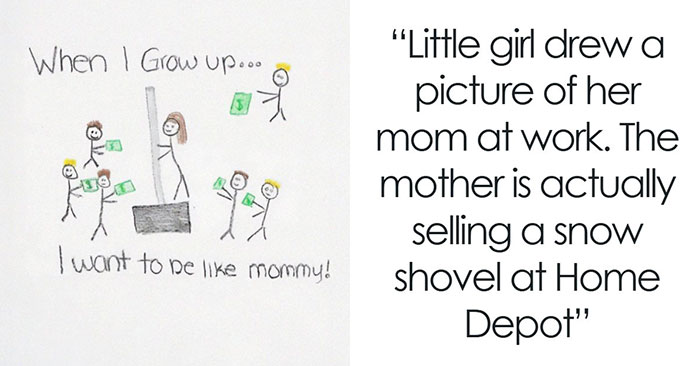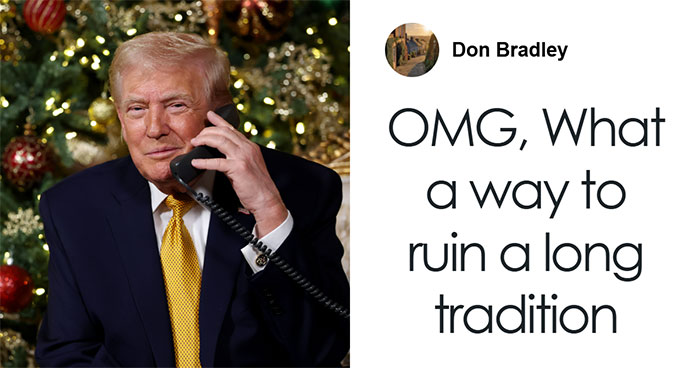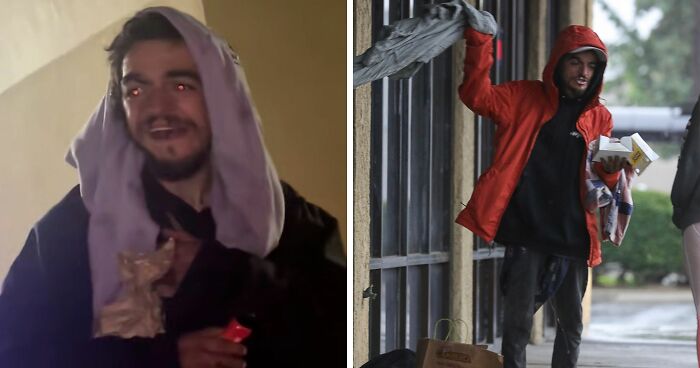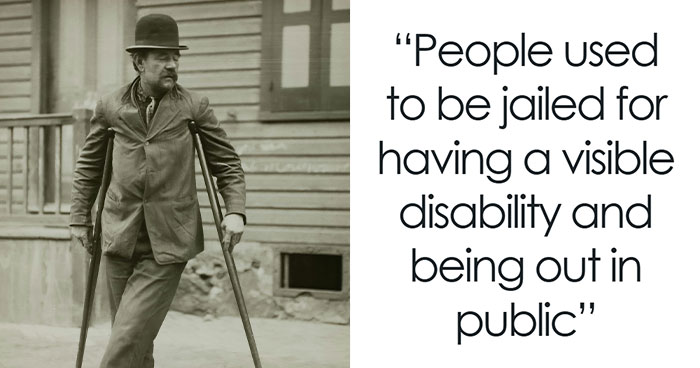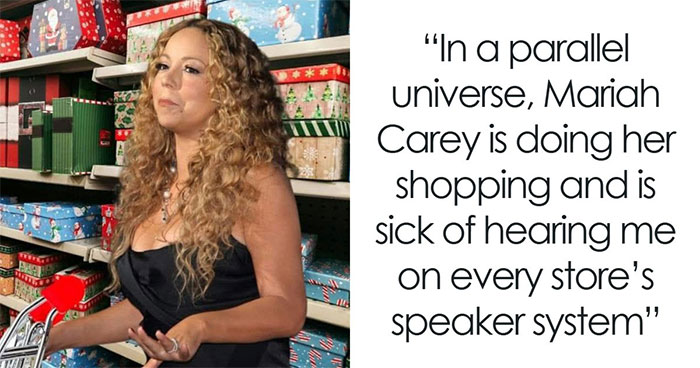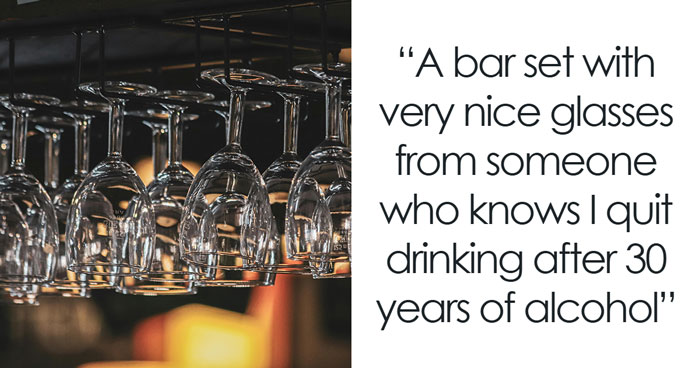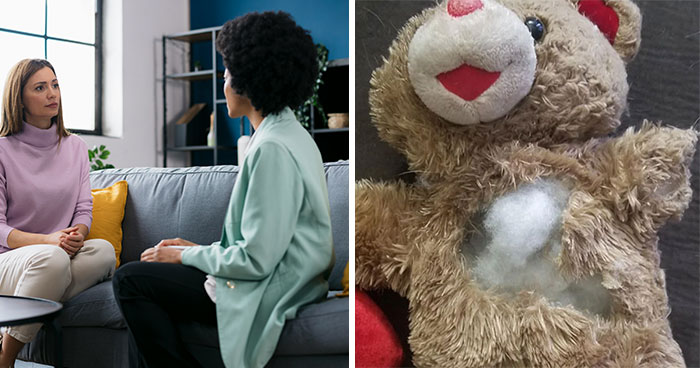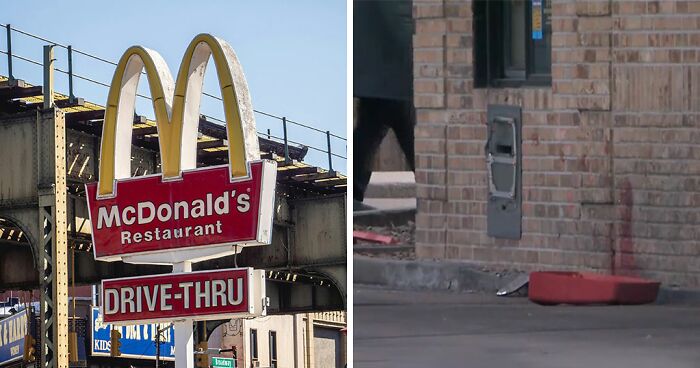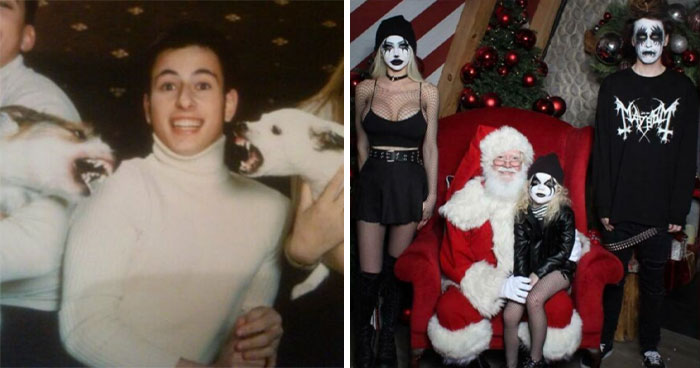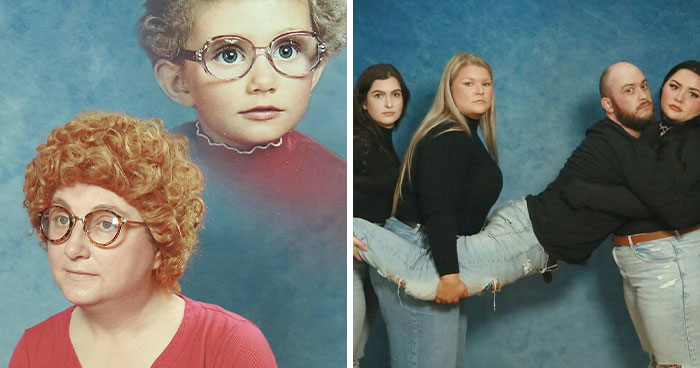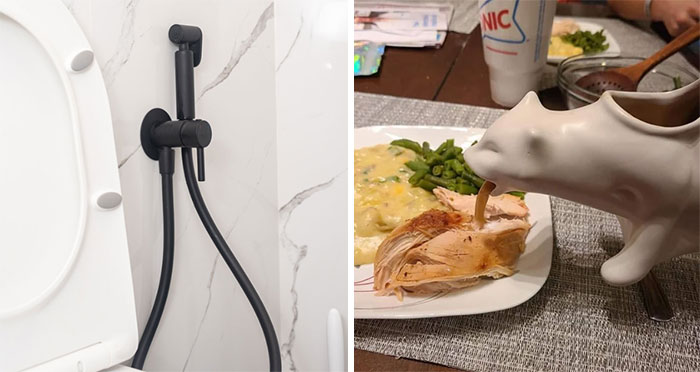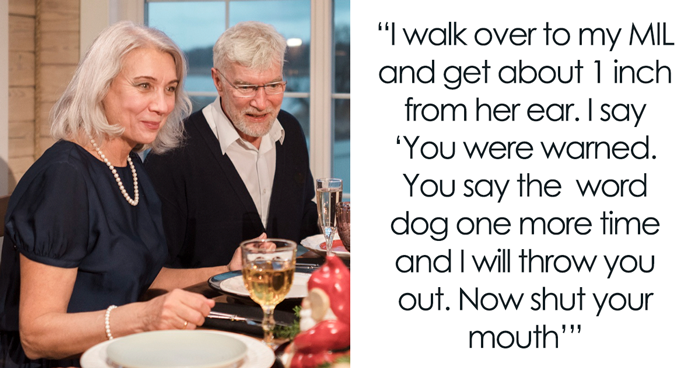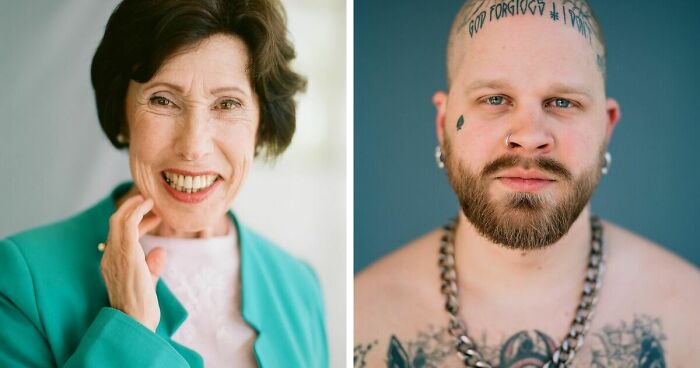
This Photo Project Unveils The Harsh Realities Of Discrimination Experienced By People (18 New Pics)
If you have never faced discrimination or been close to someone who has, you might not understand how much some people have to deal with in their day-to-day lives. So to shed light on this topic, an incredible photo project called ‘be anyone, be yourself’ on Instagram was born.
By collecting different people with diverse experiences, a Kyiv-based flea market called Kurazh wanted to promote social cohesion. There were five photographers: Roman Pashkovsky, Sergey Sarakhanov, Daria Shramko, Ksenia Kargina, and Taras Vorobets, who participated to get the shots accompanied by a short, eye-opening interview.
So today, we invite you to learn more about this topic and the people who opened up to us below. As this is the second part of the project on Bored Panda, make sure to see part 1 as well.
More info: Instagram | Instagram
This post may include affiliate links.
Susanna, Old Age
"Have you ever faced discrimination?
I consider myself a young person, but I am already 68 years old. I was very confident, so when I started looking for a job being 65, I was accepted and was working very successfully.
What do you like about yourself the most?
I have retired but I don’t have a lot of free time. I am learning English, belly dancing, attending various lectures, and working in an agency for senior models. I don’t want to fall behind my grandchildren. They are fascinated by me and it helps me a lot."
Ageism, particularly towards older people, is very prevalent in society. Mostly they are readily dismissed as being stupid, can be treated poorly in stores, and are not recognised for having accumulated a wealth of life experiences. I once took my grandmother to a "Centenarians Party" for people over 100 in her locality. It was fascinating to hear what some of them had done in the past - played soccer for Australia; been a missionary in Papua New Guinea for over 50 years; and CEO of a big company, for example. Even those who hadn't achieved great things (in the minds of other people) had enjoyed fulfilling work and family life. Of course, once an ar*ehole always an ar*ehole. And some of the elderly turn into completely different people due to dementia and other health issues. But by and large mature people are not appreciated for who they are - and little do younger people realise they will be them one day.
Aniania, Nigerian
"Have you faced discrimination?
I’ve been living in Ukraine for 8 years already. Firstly it was very difficult especially because of the language. There was a barrier, I was speaking only English. It was difficult. But then I learn the language, everything became easier. I have lots of friends, they helped me to succeed.
When I lived in Nigeria, I never sang. Only in my room or in a bathroom. My dad always wanted me to be a doctor. When I moved to Ukraine, during my first year at the university I had this constant dream that I was singing and there were a lot of people, thousands of them. So I decided to go to church for service. I sang in a choir there for 3 years, I served, I helped at the university.
What were the lessons of this situation?
To listen to me. It seems that God wanted me to sing.
I think that this talent and this dream were given to me by God to touch people and bring them joy.
What do you appreciate the most in this situation?
I like that I can bring happiness to people with my singing. I couldn’t even imagine my life to be like this."
I love the expression he has; it's like he's smiling with every part of his body.
Andrew (6 Years Old) Mother Yulia (37 Years Old), Diagnosis: Down Syndrome
"Have you ever faced any discrimination?
Evaluation views certainly took place and probably do now. But I’m trying to think positively and ignore them.
Once we were walking down the street, Andrew was already big enough and was moving on a wheelbarrow. The girl saw him and said to her mother: «Oh, this boy is sick, I don't want to look at him». Mother immediately took the baby away, like it was a fire alarm.
This. I have a child with down syndrome. They love to give hugs and in general are very affectionate. They like to give hugs when we go out. While we always ask if it's ok, there are several times when people just reel back in disgust. We've had restaurants refuse service. We've been told that they are sick and to get them fixed.... So much. We try to use this as a learning moment for those people, but so many just don't want to acknowledge people with disabilities.
Olya (10 Years Old) And Mother Katya (41 Years Old), Diagnosis: Cerebral Palsy, Microcephaly, Partial Atrophy Of An Optic Nerve, Delayed Physical And Mental Development
"Have you ever faced any discrimination?
Yes, we have faced it, but I can't blame people for that. Most likely it's more about misunderstanding than anger. We are raised in a society where everything is stereotypical. Sometimes people on the street can look away or nod sympathetically, although we absolutely do not need any sympathy.
I have clearly stated my position — I have no regrets and I do not want the patience to be desired. You better wish me pleasure.
What did you learn from this situation?
It all started during my pregnancy. I had twins, two girls and everything was going well. At some point I started to itch and covered in rashes. I went to a gynecologist, she was young and inexperienced, so she said that everything was okay. A few days later I visited another doctor. At my 30th week of pregnancy she saw one of my baby is dead and the other has a very weak heart beating.
Then God just built a path for me, for which I’m very grateful. All the necessary doctors were on duty, because there was a meeting held nearby. The surgery was ready for a planned operation, but it was canceled to caesarize me. Everything happened the way for me and Olya were finally together.
With her birth, I’ve learned to love differently, with great love. She taught me to accept situations and people as they are. Now I know that you can plan one thing and then something will happen and everything needs to be redone quickly. So I don't make such clear plans as before.
What do you love about Olya the most?
I love everything in her. She started smiling just a year ago, but her smile to me is absolute happiness. Her laughter, her reaction to the new sounds and the way she pleases me are incredible.
She is the most perfect baby for me, we have a real tandem with her. Olga allows me to be who I am. With her my life goes has balance.
Together we make small steps, but we are very pleased with them. It’s important to have love here, but not only patience or desire."
Oleksandra And Her Son Denys (12 Years Old), Autism
"Have you ever faced discrimination?
We make our move in advance – in order not to face discrimination we just don’t go to places where we won’t accept, e.g., at school. We are very glad that there are such projects, where Denys’ specific traits are accepted.
In public transport or on the streets people consider Denys just as a very spoiled child. They try to admonish, to teach him how to behave, but he is afraid of the admonitions of strangers.
What was the outcome of that situation?
There was a moment when I understood that I don’t have to adapt Denys to us, and the whole society — to him. It’s not used to make constant concessions. It’s just important to live.
What do you like about Denys the most?
Freedom of expressing himself, bravery, and fearlessness, he says everything honestly, openly, and directly. I’m the opposite of this, so I learn from him. Thanks to him I started to express my point of view more bravely. He is also very interested in everything. If he likes something, then he delves deeply into it. He can also find interesting solutions to problems and ways out of any situation.
What do you like about this situation?
I’m grateful that life didn’t leave me in cozy circumstances. That it didn’t leave me to drift the flow without waking up. This situation invigorated me. I started to perceive life differently. I understand that there are different situations and that life doesn’t owe me a thing, I appreciate every single day. I perceive people differently. I know that my situation isn’t the most difficult and I don’t make plans too ahead of time."
Rostislav, Svyatoslav, Yaroslav And Myroslav, Two Sets Of Twins
"What kind of discrimination have you faced?
People are constantly trying to interfere with us. Sometimes it’s even hard to have a ride via tube. Everybody’s staring, asking: Are these quadruplets? And you have to explain every time that no, these are twins, born one after another, and they look very much alike. It happens.
When the boys were little we dressed them in the same clothes, they didn’t mind. But when they grew older, they started having complexes, because they got a lot of attention from other people.
What was the outcome of the situation?
I always tell them that there are four of them, that they are unique and there is nobody like them… It’s nice.
What do you like in this situation?
There are four of us, we are different. We are brothers and we will always be there for each other."
Twins — Vanya And Nikita (6 Years Old) And Mother Ludmila, (35 Years Old), Diagnosis: Cerebral Palsy
"Have you ever faced any discrimination?
When the boys were 3 months old, my husband went on a business trip and became ill with pneumonia. During a phone call he said it was just a poisoning. The next morning I was said that my husband Semen had died.
And before that, as a result of an accident at the enterprise, my mother also had died.
That’s how we remained alone when boys were only 3 months old. All friends began to disappear with the diagnosis of my kids.
Now we still face discrimination, constant views on boys and wheelchairs and questions like «Why are they not walking yet?». One day we were in circus and a kid saw Vanya. He wanted to run up to him, but the parents grabbed the boy and said that Vanya should not be touched because he was ill.
In such moments I totally lose my mood. However I’m learning not to concentrate, but still the residue remains. That is why it is important to teach and explain it to children. Because one day they become adults who will continue saying that he is ill.
Vanya and Nikita want to have friends, but kids don't play with them. Maybe they just don't understand how. They see that my guys are not running and that’s all — they are playing with others..
What did you learn from this situation?
I used to think that sick children do not exist. I just didn't see them, but now I do.
This has taught me many things: patience, endurance. I really got stronger, though it seemed like I couldn't before. When boys were 4 months old, I even thought about suicide. But then I looked at them as they were smiling and I realized — I needed to strive for something and do something for them to do well.
What do you love about Vanya and Nikita the most?
I love their sincerity, kindness and the fact that they see only good things.
Guys often smile and wait for the answer to their smile, they really want reciprocity. Vanya and Nikita enjoy the little things. This is what I still need to learn from them."
Nina And Olena, Lesbian Couple
"What kind of discrimination have you faced?
Nina: We didn’t face discrimination. 15 years ago a girl kissed me and suddenly I understood everything: Oh, that’s it. I want to kiss girls, not boys. I came to my parents with a poster, even though I had to get married in 2 months.
What was the outcome of the situation?
We are the example when everything is just awesome. Everybody loves and adores us – the customers, friends, and our granny. Our parents love us and adore us.
My granny, who is 85, is always asking me about my exes. She remembers who had cats, dogs, etc. I always come to birthdays with my beloved, and my granny is thrilled, everybody’s a daughter, and everything’s fine.
Olena: Yes, parents know, all surrounding people know. We heard that some people have problems, being afraid of coming out. We have a lot of friends but our status wasn’t questioned, no incident like this at all.
What do you like in this situation?
We represent this particular case, when you can live openly without being afraid. There is no point in fear and hiding. Lots of people are afraid that if they tell somebody, they won’t be understood by their friends, parents, etc.
We are who we are. We love each other and ourselves in this relationship.
We are the same example that you can live openly!
We are what we are. We love each other and ourselves in this relationship."
What a gorgeous couple! I am so happy that they found love and acceptance from those around them. I truly wish other people who have to remain closeted due to fear of receiving backlash from family and friends can one day be themselves and celebrate their love. Sadly, their is still an incredibly amount of stigma around some sexual and gender identities.
Valeriia And Her Daughter Myroslava (13 Years Old), Cerebral Palsy, Epilepsy
"What kind of discrimination have you faced?
Not so long ago there was an event for children with disabilities, which was highlighted in mass media. Kind of like open, public, inclusive, and high quality. But behind the scenes it was said that only nice children should be brought — those, who will be able to sing a prayer and can do something with their own hands. For the whole picture to look better.
What was the outcome of that situation?
You can’t change the situation but you can change your attitude to it. It’s just life, it cannot consist of everyday rehabilitation and lessons, there is so much more to it. So it is necessary not to stop. A child with a disability is a problem you can’t escape, but you have only one life, so you have to live it with gusto.
What do you like in Myroslava the most?
I like her buoyancy. She smiles and accepts everything with a hint of humor. She learned to laugh at her problems. Once we were trying to get into the overcrowded tram, and we got stuck — nobody was getting out, nobody was helping with the place, and there was no space for a wheelchair. And Myroslava started chanting: “Spread, please, let the disabled in”. People were looking at her with surprise in their eyes, and she said: “Haven’t you seen anything like this?”. She doesn’t make a tragedy out of her illness. If you pay attention, it turns out that our girl is just fine.
What do you like about yourself in this situation?
I never give up. I rest for a day and then once again continue moving and igniting everyone."
Kira-Ayshe (3 Years Old) And Mother Natasha, Diagnosis: Pachygyria
"Have you ever faced any discrimination?
She is still at a young age and special external signs of the disease did not become evident. Probably that’s why we have not yet faced any problems. Nevertheless I understand that when Kira grows up a little, the difference between her and other kids will be much obvious. And then everything will unfortunately start, but not yet.
What did you learn from this situation?
When we first came to the diagnostic center and we were told that we had a suspected cerebral palsy — I went pale. Doctor said a phrase that seemed wild to me at that time: «Now here will come mom who wants her baby to have just standard cerebral palsy». I didn’t understand the meaning of these words then, but now I truly feel it. I didn't have those three stages, everything came at once — from unbelief to total acceptance.
Now I know that you can only count on yourself. I’ve learned to appreciate the time. Children die, whether they healthy or sick. So you realize that every day is the time.
What do you love about Kira-Ayshe the most?
I love her character, she is very stubborn. Sometimes it bothers her, but I think it will help in the future. She always pursues her aim."
I am a high-functioning autistic, and I could tell a lot of stories about people treating me very unkindly because they did not understand me. Autism is a CONDITION, not a disease, not a syndrome, not a defect, not a disability. Autistics don't need to be cured, just understood and accepted. Some people have told me that I must have "overcome" autism, but that is bullfeathers - you don't get over autism any more than you get over being a redhead.
Tymur, Half-Korean
"What kind of discrimination have you faced?
I am half-Korean. I always had quite a narrow eye shape. Taking into account that I do not live in the city center but in the dormitory district, people who are not like others sometimes evoke certain misunderstandings.
I can’t say that the bullying was harsh. Your personality development is influenced by the environment you are brought up in. But I was teased constantly, e.g., we are playing football, and people are stretching their eyes corners, teasing, trying to make up some pseudo-Chinese. You understand that it was made because of you, so you feel kinda out of place.
What was the outcome of the situation?
Later I learn how to play with it and transform the thing everybody considers a peculiarity into my shtick. I bought the T-shirts of football teams of Japan, Korea and was running, wearing them. People knew the players, and they perceived it with irony.
It helped me to accept myself and others — to accept me. When the person perceives themselves in such a way, there’s no point in bullying.
What do you appreciate the most in this situation?
It helped to develop the sense of irony; it’s much easier not to take yourself too seriously; it allows you to perceive things much easier whatever happens. It gives you a sense of openness and freedom."
Oleksandra And Her Son Kolia (9 Years Old), Epilepsy
"What kind of discrimination have you faced?
Kolia has epilepsy. Is a very rare kind, there are only several kids in Ukraine with this diagnosis. It’s called Jacksonian epilepsy. It’s genetically stipulated, there was some mistake during genes’ sequencing. It just happens. This diagnosis is followed by hindered development, behavioral peculiarities, autistic traits, and sometimes seizures.
Everybody pays attention because the child isn’t acting like other children of his age. It’s OK that people pay attention to it. I have grown the armor in 8 years, but it hurt earlier.
What was the outcome of the situation?
We haven’t faced impudence and humiliation. But we were not admitted to kindergarten, to primary school for the learning mode that I wanted. Kolia is home-schooled. We wanted to attend all classes, but we didn’t get an assistant teacher, and there’s nothing to do there without one. Kolia won’t sit calmly all the time, he doesn’t understand things like sitting straight and don’t move.
If I see that kids have questions, I don’t wait for them to ask their moms; I am the first to tell: The boy is not like the others, he is peculiar. Do you want to be friends with him? I’ll tell you how. And if parents don’t interfere, everything is usually OK. They find common ground; I don’t know how, but these are kids, they just do it.
What do you like in Kolia in this situation?
I love him as he is. It wasn't easy. But after acceptance, everything changed. Just in a click. At that time we got acquainted with all the girls, then the first Space Camp happened, and then — Kurazh Bazar. I remember when we came here for the first time we learn for the first time what it’s like, to be a normal family, without any peculiarities.
Sometimes Kolia is such a cutie pie, he behaves so well."
These people are so beautiful!!! My family, on my father's side come from Ukraine and they are such a beautiful, wonderful people. It makes me cry every day I see their tragedy in war on the news. I was born and live in the U.S.A. but every moment know and appreciate the freedoms we enjoy and so many take for granted. Thank you for posting this article. My tears are happy seeing these amazing strong people!! Slava Ukraini
Mother Yulia (36 Years Old) And Vova (10 Years Old), Diagnosis: Cerebral Palsy
"Have you ever faced any discrimination?
When Vova was born, all the money we spent on medicine, all sorts of things. We also bought many things abroad. We didn't have enough money to have a perfect look as we would like. When someone passed by and evaluated us, I immediately saw the question in their eyes like «Drug addict, alcoholic, whore — who are you?». Inside I felt second-rate.
When Vova became 4 years old, we came to the playground and met the baby with his mom. By that time we were already moving in a special wheelchair. The baby calmly came to Vova and started asking something. But her mother quickly took her away from us and left.
I think the problem is with adults. Children are ready to accept and interact. Sometimes you look and wonder why there are so many open-minded children, who do not pay attention to differences and support at any moment.
What did you learn from this situation?
Vova is my gift. He taught me everything: to look at life differently, to rejoice, and to see happiness in everything. Someone complains that their baby does not sit down at 6 months of age. But my boy rolled over by himself first time at 8 months and it was an incredible joy for me. Children start saying «mom» very early. Vova started to make any sounds just at 4 months of age. The word «mom» in the syllables he tried to say when he reached a year or even a year and a half. These little things are incredible.
What do you love about Vova the most?
I love his smile and joy for everything. Recently we were at a birthday party, where one mom came to Vova and asked how he was doing. He said with a smile that everything is okay. This woman immediately burst into tears, because she could not believe his answer. She said her healthy and beautiful daughter is constantly dissatisfied and says that life is bullshit.
Vova is excited about everything. He loves his family, animals, and other children.
I adore him, he is a piece of me, a piece of us with my man, a piece of this world."
Tymofiy (6 Years Old) And Mother — Svitlana (34 Years Old), Diagnosis: Cerebral Palsy, Epilepsy, Partial Atrophy Of An Optic Nerve
"Have you ever faced any discrimination?
Of course, we have experienced it and actually we still do. It’s now when we have learned not to pay any attention on that. Everyone reacts differently, mainly due to ignorance or some fear.
Sometimes Tymofiy can start crying for no reason. I understand that at that moment the best I can do is leave him alone, so he can calm down by himself. But passersby don’t know the situation, so they are always like «calm down your baby» and give us that strange looks.
What did you learn from this situation?
Everything has changed completely. I now divide life into «before» and «after» and we had to adapt to the situation. We have learned what love means, how to love a child, how to be happy with what we have. Today I can't say I'm suffering. Together with my husband we’ve accepted everything we have. We love and this is the main thing.
There is no longer any worries about little things, everything became much easier.
What do you love about Tymofiy the most?
All! I really love the fact that he is direct and has the character. I even love the fact that sometimes he can be a bit tricky."
Vasia And Vania, Twins
"What kind of discrimination have you faced?
We use the fact that we are twins in stressful situations. I say, e.g., let’s go together, and the others start telling: oh look, the twins yada-yada-yada, etc. It’s not offensive but when you are in a bad mood it can be annoying. When you are in a bad temper, you just want people to stop paying attention. We are dressed differently, we wear hoods and glasses. Sometimes people shout: Oh, look, twins! or Do you see any difference between yourselves?
What was the outcome of the situation?
We don’t know how it could be any different for us. We also have certain reactions when we see twins: Oh, look, how unusual. We don’t apply it to ourselves; should we be in the other’s shoes, we’ll react as they do.
Nobody offended us in childhood, but there was one bad story in kindergarten. You know the thing when they take photos with kids wearing different outfits, so the organizers decided to do the photo of only one of us. We asked why that is so. The answer was: You are similar, one photo is enough. Our visas once got mixed, and on the customs people often ask if we exchange our passports.
We were reading with playback — Vania was a better reader than me. We sit in different places in the classroom, and he read instead of me. We dealt the same with homework, e.g. you learn History and Math and I learn everything else.
What do you like in this situation?
We are twins. We are very lucky that we don’t suffer from loneliness. We are happy to be twins.
My sisters are twins. It was hard for them to have separate friends or get invited places because people felt they had to invite both of them or neither
Morzh, Tattoos
"Have you ever faced discrimination?
I lived in Sevastopol, and the place I lived wasn’t the nicest district in the city. Somebody was always trying to beat me or offend me for being a punk rocker. But I was lucky, I have the talent to talk to people and make them listen to me. Even those who came from prison. When they see my tattoos, they pay attention and say that they are OK. But not so long ago in a bar, I was asked very aggressively about the tattoos on my face. I was said that I’ll have problems in prison. The thing is that I don’t have any intention to get there.
What do you like in your situation?
My mom, trying to understand what it’s like, made a minuscule tattoo. Since then, she has had only one request — to make tattoos in a tattoo studio and not in some unreliable place.
What do you like about yourself?
I do everything deliberately. The 1st tattoo on my body was done when I was 18 and the one on my face — when I decided on my career and understood that tattoo won’t influence it in any way."
I really admire anyone with tattoos because it shows that they can sit very still for a long time while needles are repeatedly drilled into their skin and I find that very impressive. I would very much like to get a tattoo someday but I doubt my ability to remain still and also it sounds very scary to me.
Svitlana (40 Years Old) And Her Son Oleg (10 Years Old), Diagnosis: Anomaly Of Brain Development
"Have you ever faced any discrimination?
Of course, we’ve faced a lot. But today much has been forgotten.
Everyone reacts differently. Earlier I had a feeling that I was going out with Oleg and everyone was looking at me. It felt as if I was standing naked. Now everything has changed a little. Or I have changed my attitude towards everything.
Discrimination exists and in many aspects, it is related to laws, and education. Last year we tried to go to school, but we were refused. They didn’t even see my baby, just a diagnosis. But this year we’re planning to storm again.
What did you learn from this situation?
I’ve learned to enjoy and appreciate the impact. Now I also have a second child Sonya (6 years old) and it’s easier with her. They both make a lot of changes in me.
Children do not identify whether other ones are sick or not. I guess we need to learn this from them.
What do you love about Oleg the most?
He is simple and very outspoken. He shows all his emotions and it's so cool. When he smiles and plays, this is true happiness for me."
Mom Olga And Her Daughter Olena (28 Years Old), Two-Way Dislocation Of Both Hips And Bilateral Coxarthrosis
"What kind of discrimination have you faced?
I wasn’t accepted as a person at school. Due to problems with joints, I was very slow and the children didn’t want to spend time with me. I went to boarding school for children with ICP, and after it, I went to the 11th grade once again not to be eyed askance.
I didn’t work a single day — nobody wanted to hire me because I couldn’t sit the whole working day and nobody wanted to deal with part-time.
What was the outcome of that situation?
When I finished school, I fell in love with my husband, married him, gave birth to Polina, and started to feel love for myself and accepted myself fully.
What do you like in this situation?
I am grateful that I could really value my pregnancy and the possibility to give birth. I can’t do this now but I could then. My daughter's birth is the warmest memory for me."
I have a brother with disabilities & have worked with several subsections of the disabled community over the years so love the content here, but what I came to say is that I also really enjoyed the translation. It's interesting to me how different languages frame thoughts and concepts differently, apart from just having different words or grammatical structures. The translation here, while making it a bit awkward to read, shows that off beautifully, using a richer English vocabulary than most people use in daily speech and is still easily understood. Linguistics for the win!
Exactly what I was thinking. Thanks for putting it so eloquently.
Load More Replies...hi, you might've seen me comment in other articles here about living with chronic illness! I was born with ehlers-danlos syndrome, a connective tissue disorder that results from messed up collagen proteins. I've never lived a truly "normal" life, but I have experienced the difference between people perceiving me as "normal" and "abnormal." when I'm out and about in public, I often get pitiful stares and smiles from people that notice I'm in a wheelchair and sometimes I get people that refuse to even acknowledge that I exist (it's impossible to explain how different it feels from the everyday indifference from passerbys. it's like they're actively pretending I don't exist.) I've also been infantilized and prayed for in public much to my dismay and embarrassment (I'm 20 years old and have also been hurt by organized religion, you can see why I hated every second of that) Even my dad has experienced it, the people that refuse to accept that I can speak for myself and the people that / 1/2
pity him for popping out a disabled kid. I'm one of the lucky few that managed to find love despite my condition, but even so, I have a lot of insecurities in my romantic relationship. I know that if this relationship doesn't work that I probably will never end up in another relationship because of how much my condition has deteriorated over the years. I'm one of the lucky ones that has a partner that understands I'll never recover. if you'd told young me that these would be my experiences one day, I would've told you you're lying. That's the difference between someone that's never experienced chronic illness and someone that has. I've seen both sides, and I wish I could go back, but I know I have to carry on and accept whatever life throws at me. maybe one day this world will be accepting of those of us that are different, but until that day, us weirdos have to stick together / 2/2
Load More Replies...I have a brother with disabilities & have worked with several subsections of the disabled community over the years so love the content here, but what I came to say is that I also really enjoyed the translation. It's interesting to me how different languages frame thoughts and concepts differently, apart from just having different words or grammatical structures. The translation here, while making it a bit awkward to read, shows that off beautifully, using a richer English vocabulary than most people use in daily speech and is still easily understood. Linguistics for the win!
Exactly what I was thinking. Thanks for putting it so eloquently.
Load More Replies...hi, you might've seen me comment in other articles here about living with chronic illness! I was born with ehlers-danlos syndrome, a connective tissue disorder that results from messed up collagen proteins. I've never lived a truly "normal" life, but I have experienced the difference between people perceiving me as "normal" and "abnormal." when I'm out and about in public, I often get pitiful stares and smiles from people that notice I'm in a wheelchair and sometimes I get people that refuse to even acknowledge that I exist (it's impossible to explain how different it feels from the everyday indifference from passerbys. it's like they're actively pretending I don't exist.) I've also been infantilized and prayed for in public much to my dismay and embarrassment (I'm 20 years old and have also been hurt by organized religion, you can see why I hated every second of that) Even my dad has experienced it, the people that refuse to accept that I can speak for myself and the people that / 1/2
pity him for popping out a disabled kid. I'm one of the lucky few that managed to find love despite my condition, but even so, I have a lot of insecurities in my romantic relationship. I know that if this relationship doesn't work that I probably will never end up in another relationship because of how much my condition has deteriorated over the years. I'm one of the lucky ones that has a partner that understands I'll never recover. if you'd told young me that these would be my experiences one day, I would've told you you're lying. That's the difference between someone that's never experienced chronic illness and someone that has. I've seen both sides, and I wish I could go back, but I know I have to carry on and accept whatever life throws at me. maybe one day this world will be accepting of those of us that are different, but until that day, us weirdos have to stick together / 2/2
Load More Replies...
 Dark Mode
Dark Mode 

 No fees, cancel anytime
No fees, cancel anytime 






